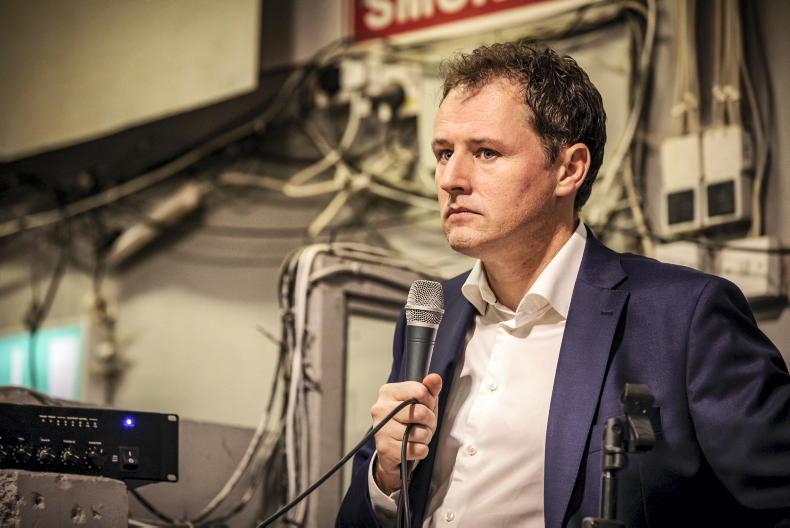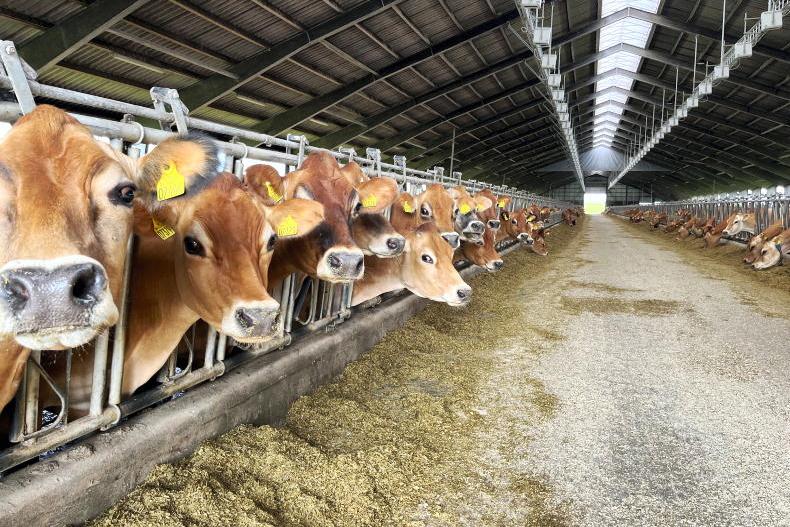Minister for Agriculture Charlie McConalogue has suggested that reducing the age of slaughter from 27 to 24 months for factory fit cattle “will reduce methane emissions by one-eighth”.
Minister McConalogue was speaking on RTÉ's Drivetime ahead of this week's expected sectoral targets announcement which form part of the Government’s climate action plan.
Age at slaughter
Describing his Department’s plans to incentivise the slaughter of cattle at a younger age, Minister McConalogue said: “It will be one of the ways of reducing methane without necessarily reducing the herd.
“The average slaughter age for animals at the moment is 27 months and the target we will aim to reduce that to is 24 months. That’s something which will significantly impact and it is the equivalent of removing thousands of animals from the system and, from an efficiency point of view, [it will] reduce overall methane."
Broader strategy
The Fianna Fáil Minister said that such a move will reduce methane emissions by 12.5% or one-eighth and might form one part of a broader strategy which will build on work that Irish farmers are already doing to reduce the carbon footprint of the national herd.
“When you look at the capacity in terms of feed additives to reduce the methane that animals are putting out and also the capacity of breeding techniques and in how we breed animals, there’s real potential there as well," he said.
“In relation to how we manage the use of chemical fertiliser, we will reduce it in the time ahead by incorporating clover swards into grassland and also then incorporating multispecies swards more.”
Message for COP26
Minister McConalogue has also backed Irish farming ahead of the UN's COP26 climate summit in Glasgow this week, describing the sector as “one of the most sustainable food producers in the world”.
He commented: “Our starting point is that we’re one of the most sustainable food producers in the world. But we have to get even better at that, continue to produce the food but lower the emissions footprint of it and there are many things which farmers have already done.”
These comments came when Minister McConalogue appeared on RTÉ’s The Week in Politics on Sunday.
Need to reduce emissions
The Minister highlighted reporting by the Irish Farmers Journal from EU Commissioner for Agriculture Janusz Wojciechowski at a webinar held by the Institute of International and European Affairs (IIEA) last week.
“The comments from Commissioner Wojciechowski last week were significant in that he was outlining that the objective here [in Ireland] is to reduce our overall footprint in terms of how we produce food. That’s certainly a principal which I would agree with and one which I have used in engagement with colleagues across Government.
“Every sector of the economy and society is going to have to contribute to this,” he said.
McConalogue added that setting a “proportionate allocation for agriculture which will actually reduce our overall carbon footprint” is a key priority.
National herd
Minister McConalogue maintained his position on the national herd as previously reported by the Irish Farmers Journal.
“What I have said since the start of my appointment is that we need to keep our herd stable because overall what we have to do is reduce the overall footprint of the food we produce.
“No doubt in the last decade we have seen an expansion of the dairy herd in particular as result of the removal of quotas.
“The next decade is going to be a different one. The next decade will be about adding value to the food we produce, improving farm incomes, but really importantly actually reducing the emission footprint of the food we produce as well.
“That’s something that can actually strengthen and will strengthen farm incomes as well.”
Criticism of Rural Independents
Minister McConalogue criticised the Rural Independent group, including TD Michael Healy-Rae, for “contesting the climate change science”.
The Minister stated: “We’re seeing many of our Rural Independents trying to whip up fear around this issue whereas what I have been doing, and what my colleagues and Government have been doing, is that we have gone into Government to support rural Ireland and to support farm families.”
For full reporting on the COP26 climate summit in Glasgow, see this week’s Irish Farmers Journal.









SHARING OPTIONS